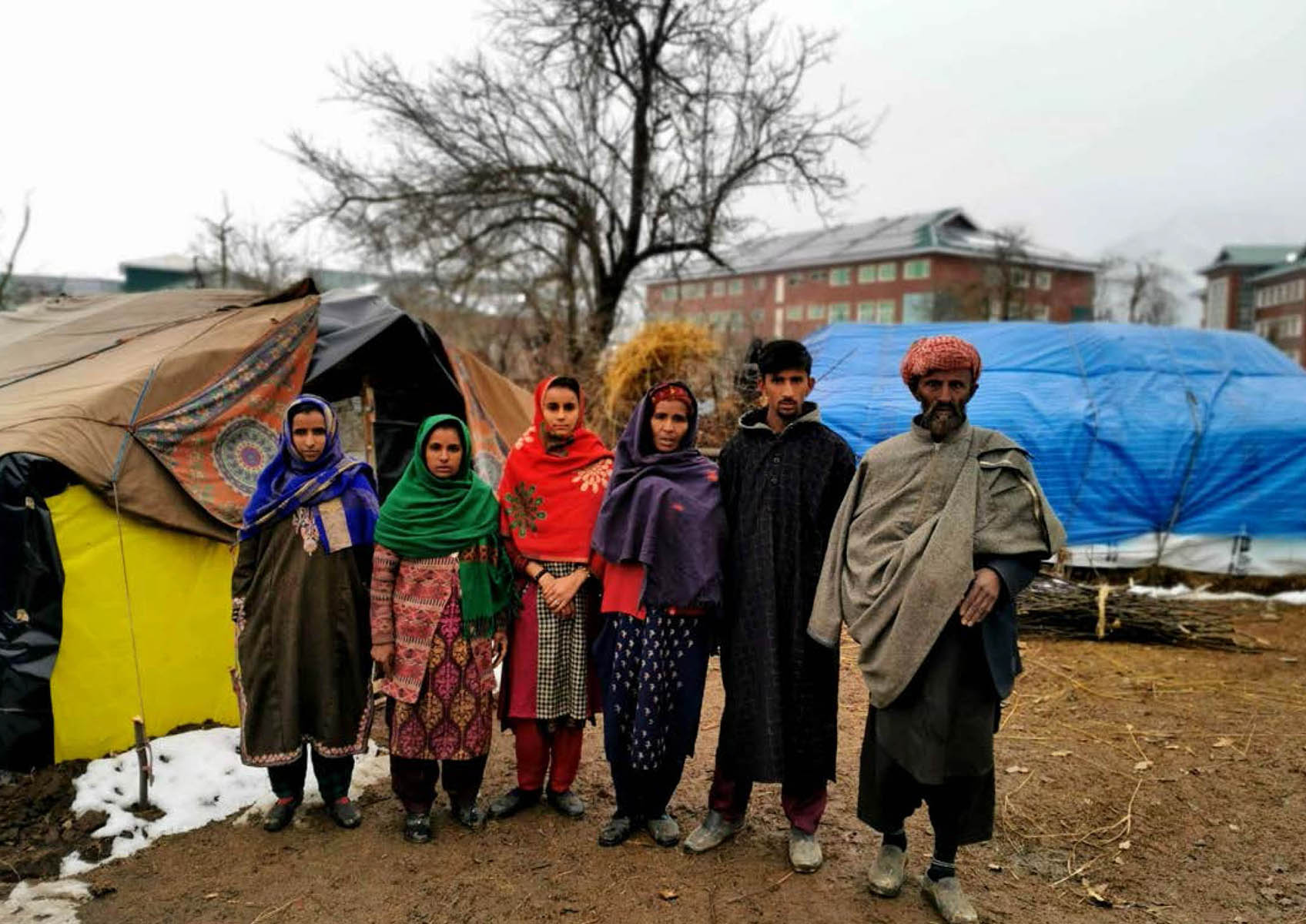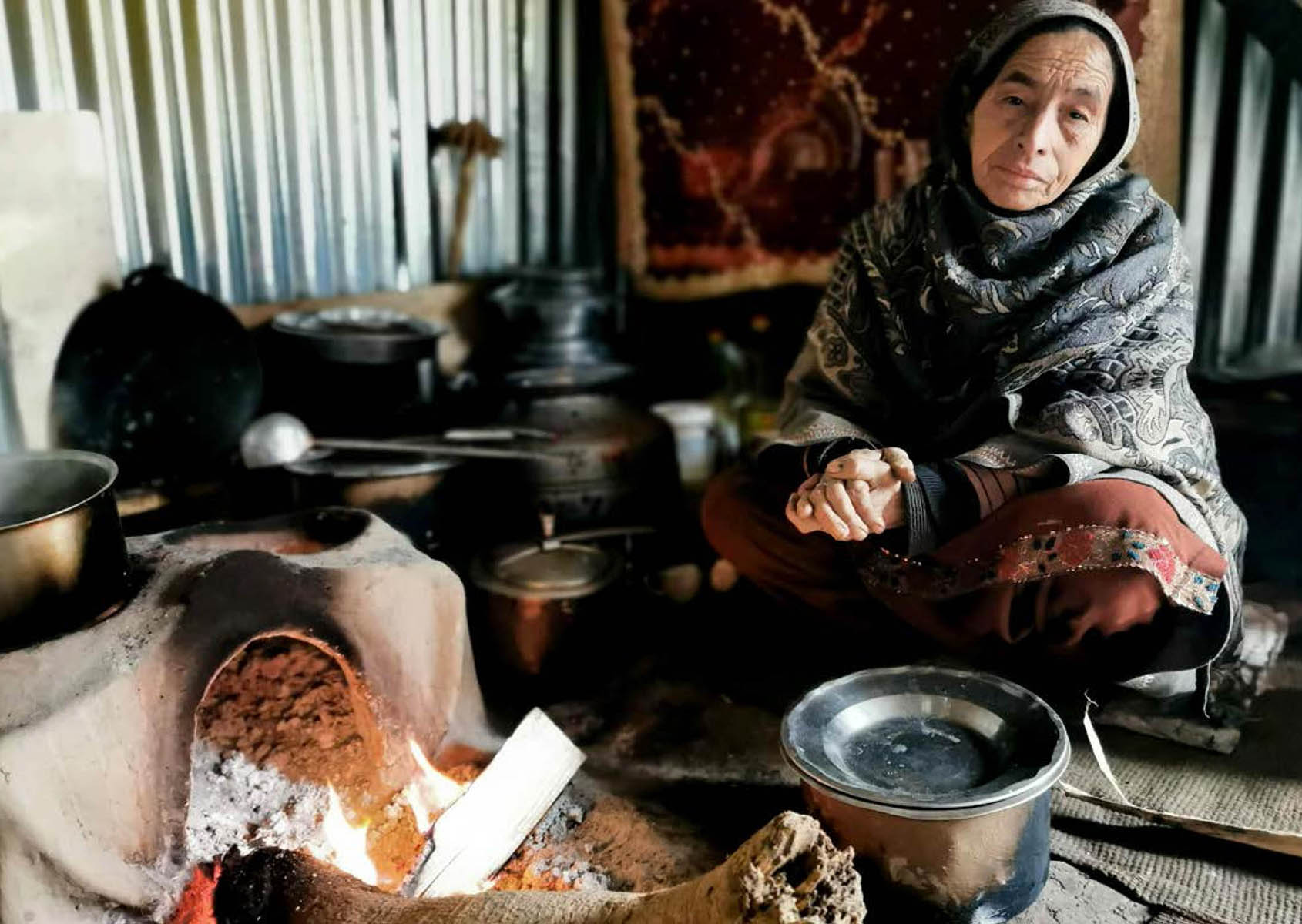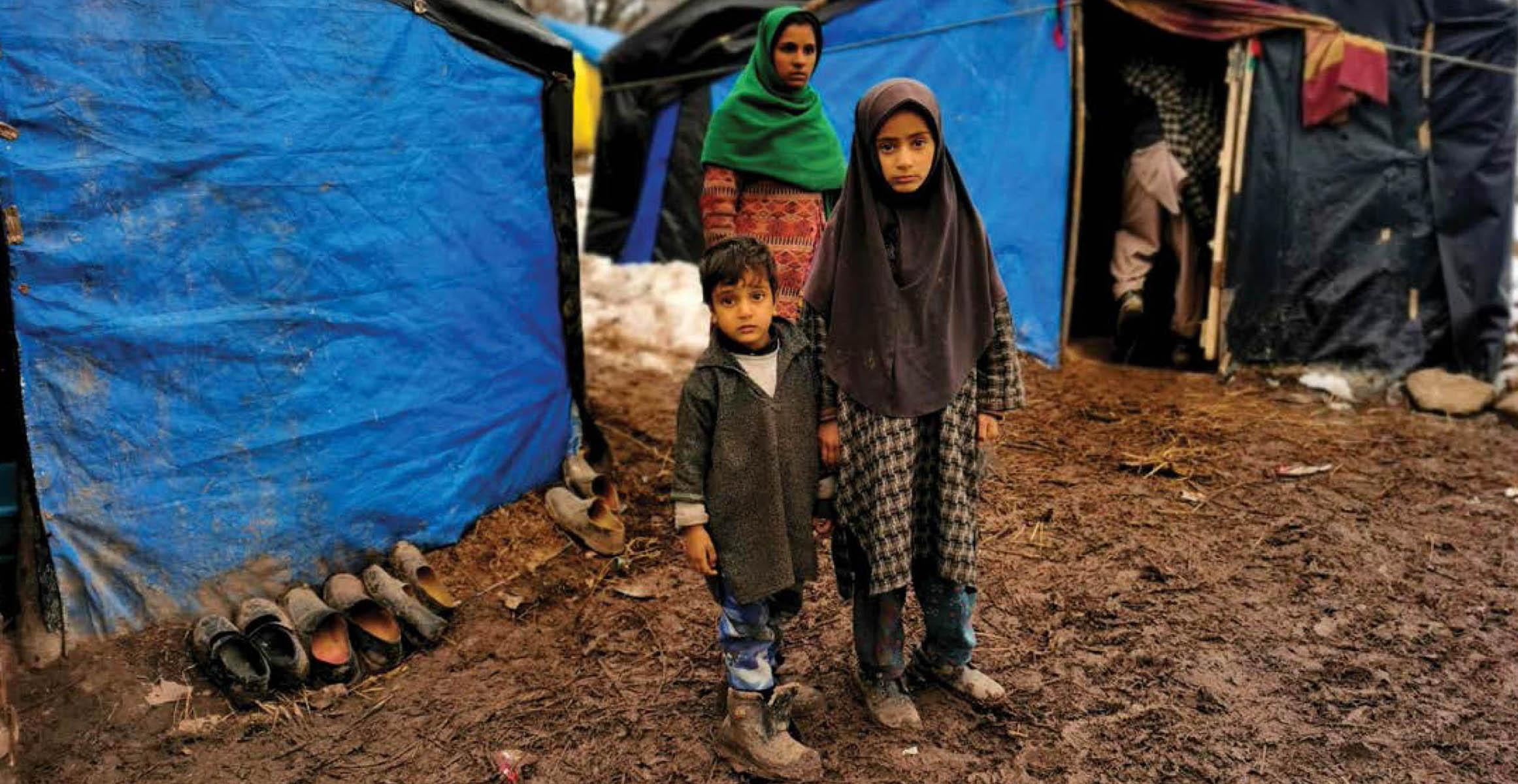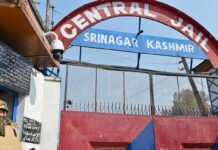Unable to move back to warm places owing to financial constraints, many nomadic families were stuck in Kashmir this winter. As cold snap hits severely, the impoverished nomads caught in the crisis shiver in tarpaulin tents, reports Yawar Hussain

As Valley shivers with extremely cold weather, dozen-odd families in south Kashmir’s Awantipora, are braving the chill inside tarpaulin tents.
Zareena Akhter, 27, a Bakerwal woman says that she sleeps with her daughter, Akhter (5), and son Showkat (3) to keep them warm at night when the temperatures plummet several notches below the freezing point.
She along with many others couldn’t go back to warm Rajouri where others from the community migrated, owing to financial constraints caused by the Covid-19 pandemic.
“Throughout the night I keep asking my half-asleep children if they are feeling warm,” she says adding that the government’s relief for four of them is just one blanket.“They aren’t accustomed to the cold weather of Kashmir and back in Rajouri the weather is warm.”
Akhter says they had to go foraging for items to build their tents.
“We bought something from the market. We couldn’t afford everything. Then we had to go looking around to collect other things,” she says adding that many people helped them. “I am hopeful that this winter passes so that we can reunite this year with our relatives who could manage to reach Jammu”.
She says her husband goes looking for work every day and if lucky returns with some money to feed the family. Akhter, however, is scared for her children after she learnt that two nomadic children died due to the cold at Kulgam.
“I heard they were living in similar conditions like us,” she says while firing up Chulha (clay stove).
Akhter was referring to Sahil Zubair (10) and Shazia Jan (6), residents of Reasi district of Jammu division, who died of severe cold at Brinal Lammar area of Devsar in south Kashmir’s Kulgam district in January this year.
Owing to Covid-19 these families couldn’t save enough money to travel back to Rajouri forcing them to set up temporary tents around the Islamic University of Science and Technology.
“We needed Rs 10000-12000 to reach Rajouri. But we couldn’t save that much money. The sale of livestock was down and the daily labour also didn’t fetch us that much money,” Mohammad Ashraf, another Bakerwal says adding that until snow fell heavily on January 4 they managed to work as labourers on construction sites but that too has stopped now.“The construction activity is completely down. We can’t find any work and have families to feed”.
Hameeda Begum, 60, who lives with her husband Iqbal Ahmad in a tin shed says that she wants to go back to Rajouri.
“I believe I won’t survive this winter. I have never seen such cold weather,” Begum added adding that it is the Chulha (hearth) that is keeping them alive.“My husband’s job is to collect wood for the Chulha first then look for some work”.
For Ghulam Nabi, another Bakerwal, spring starts when he takes his around 100 odd sheep to high-altitude pastures of Gurez in north Kashmir. His family follows him in hired trucks, with tents, food, and essentials, along with around 30 goats and a couple of buffaloes.
This clan of Bakerwals, the nomadic pastoralists of Jammu and Kashmir, then follow well-worn mountain trails, setting up camps and allowing their animals to graze in the rich Himalayan pastures until the start of autumn. Around September, they wind their way down. For the animals, especially the sheep, this escape from the summer heat of the plains and its dry grasslands is a must.

This year, however, the lockdown to curb the spread of Covid-19 had disrupted the spring migration of thousands of Bakerwals and Gujjars, another nomadic pastoral tribe. Almost half of them started, nearly a month late, after the government permitted them on April 23to use vehicles to transport their families and animals.
Nabi also came a month late this year. Most of his livestock, he says, couldn’t be sold as the market was down due to the pandemic.
“I don’t have savings. I depend on the sale of livestock every season. I have around 70 sheep left. There was no sale in the season,” Nabi says.
Nabi is also fearful of the leftover livestock as the grazing land is covered with snow.
“My livestock needs grass but there is none here. I have to fetch some leaves from the evergreen plateau to feed these animals,” he says.
The drying up of the fodder for the leftover livestock is also a cause of concern for the Bakerwals staying back in the Valley.
Maroof Khan, 30, who has lost 11 of his sheep fears a similar fate for the rest as the cold conditions linger in the Valley.
“I have a similar tarpaulin tent shed for them but there is hardly any fodder. I am planning to sell them off and just go to Rajouri,” he says adding that many among them have done the same.
He castigates the government for turning a blind eye to their issue.
“We went to the concerned Tehsildar and then to the deputy commissioner Pulwama. They didn’t help us at all,” he says.
The Bakerwals and Gujjars faced problems in fodder collection even in Jammu last year when they weren’t allowed to move to Kashmir. They had to give away grazing land to farmers in Jammu. The delayed migration then and even now has hurt the communities’ badly.
Ghulam Nabi Tramboo, a resident of Awantipora, says the locals have been organising food for these people.
“They are all in distress. Covid-19 has caused problems for us all. We are trying to help as much as we can,” Tramboo says.
Tramboo says there are more people from the community who are living in the area under similar conditions.
“Some of them are now in much worse shape. They used to take the livestock of locals here for grazing in the upper reaches and in turn, they used to pay them. But this year locals were apprehensive to rent out their livestock due to Covid-19,” he says.
Up to 1.5 million Gujjars and Bakarwals live in Jammu, Kashmir, and Ladakh – around 11.9 per cent of the region’s total population as per the 2011 Census. In Jammu, the 810,800 Gujjar and Bakarwals comprise more than 54 per cent of the tribal population. The other nomadic herders in the union territory are the Gaddis and the Sippis, but their seasonal migration is limited and only across districts.

Earlier around 800,000 Bakerwals and Gujjars, nearly 50 per cent of J&K’s nomadic population had been left behind in Jammu because of partial permission to migrate in early April leading to the present crisis.
The Bakerwals mostly rear the Australian Merino breed and local Poonchi and Kernai sheep, which cannot stand the summer temperatures of the plains and are sensitive to extreme cold conditions if the migration doesn’t start in time. The Bakerwals and Gujjars will have to face major losses in the winter which will be accounted for in the coming summer.
The communities have been in the news lately after the eviction drives were carried out in many forest areas in the Valley where people alleged that they were being illegally thrown out.
President Jammu and Kashmir Gujjar and Bakerwal Welfare Conference Zahid Parwaz Choudhary says the problem is that six lakh odd nomadic people don’t exist for government.
“The government’s Tribal Affairs department is on paper only and these innocent people are only valued when votes are needed,” he says adding that in case of death of two Bakerwal children in Kulgam due to cold last month the government didn’t even issue a single statement.
“It seems the lives of two young children didn’t mean anything.”
Choudhary says the government could have built transit buildings for these people like they are building for Kashmiri Pandits.
“There is so much of land with the government but instead of thinking about them they are evicting them,” he says adding there are many other Bakerwal people in Kashmir who couldn’t go back to Jammu due to losses suffered during the lockdown.”They are also living in destitute conditions like these people.”















